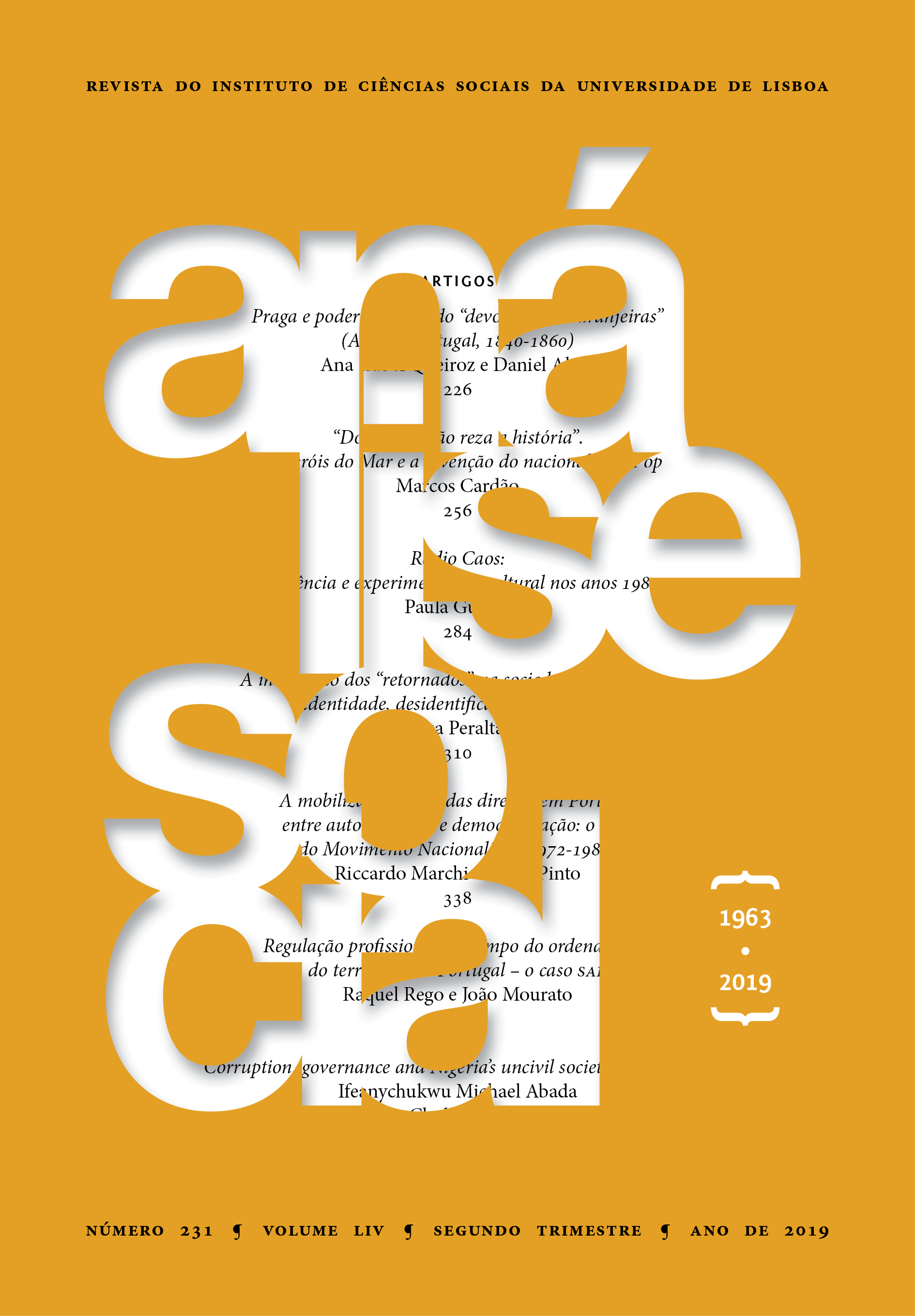The social mobilization of the right in Portugal between authoritarianism and democratization: the case of the Nationalist Movement (1972-1980)
DOI:
https://doi.org/10.31447/AS00032573.2019231.05Keywords:
social movements, rights, Marcelism, democratic transitionAbstract
In the 1970s Portuguese rights played a role in two social movements in opposition to Marcelist reformism and in favor of the post-PREC turn to the right. Among the different actors, the youth organization Movimento Nacionalista (MN) is present in both moments. A qualitative analysis of these two historical-political contexts allows us to describe the collective behavior of rights from the perspective of social movement theory: windows of opportunity, network structuring, identities, interactions among actors, strategies for resource mobilization, and objectives. We seek to make an innovative contribution to the study of Portuguese social movements between late-authoritarianism and democratization.
Downloads
Download data is not yet available.
Downloads
Published
2019-06-28
How to Cite
Marchi, R., & Pinto, T. (2019). The social mobilization of the right in Portugal between authoritarianism and democratization: the case of the Nationalist Movement (1972-1980). Análise Social, 54(231), 338–362. https://doi.org/10.31447/AS00032573.2019231.05
Issue
Section
Research Article



